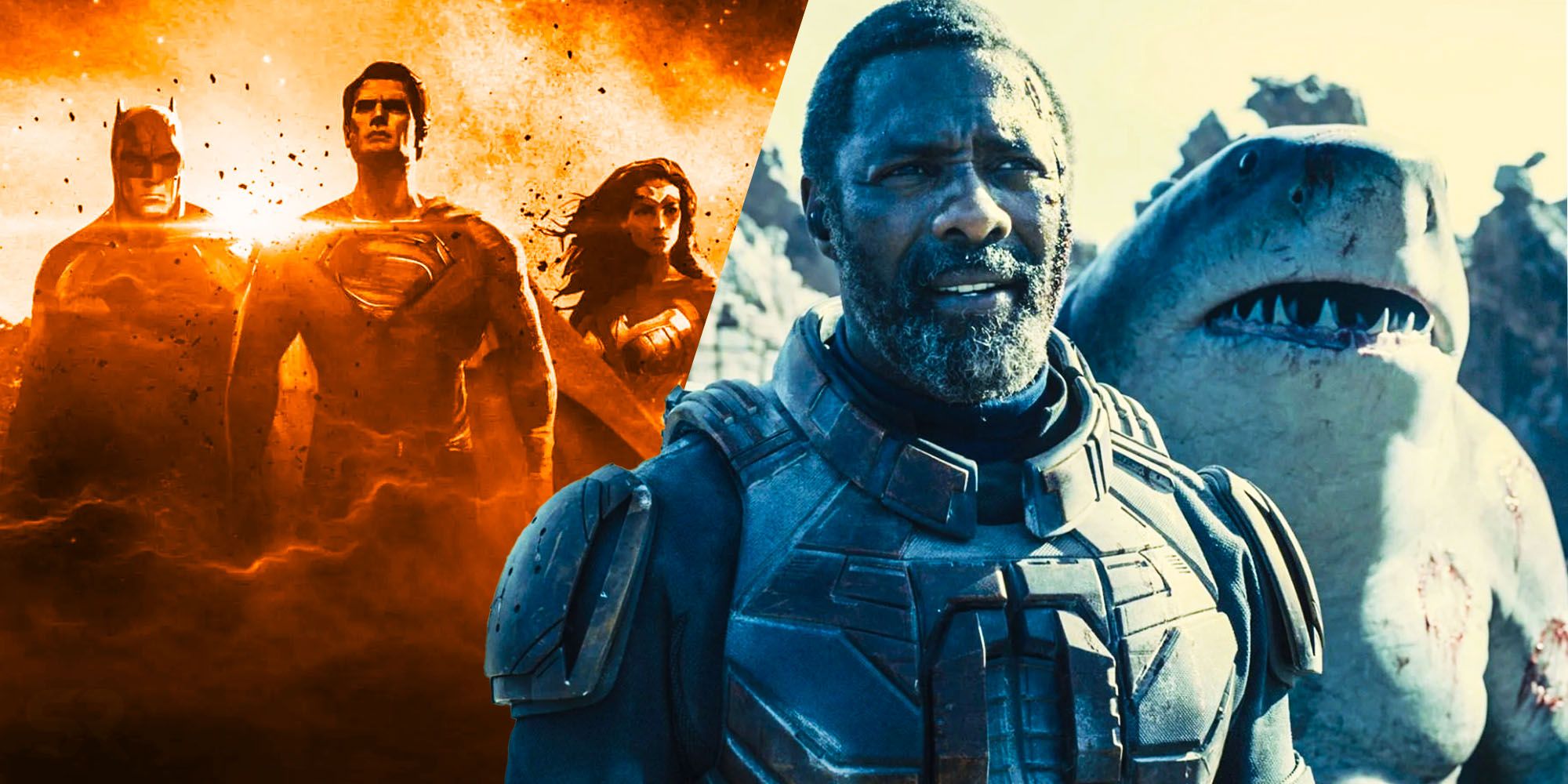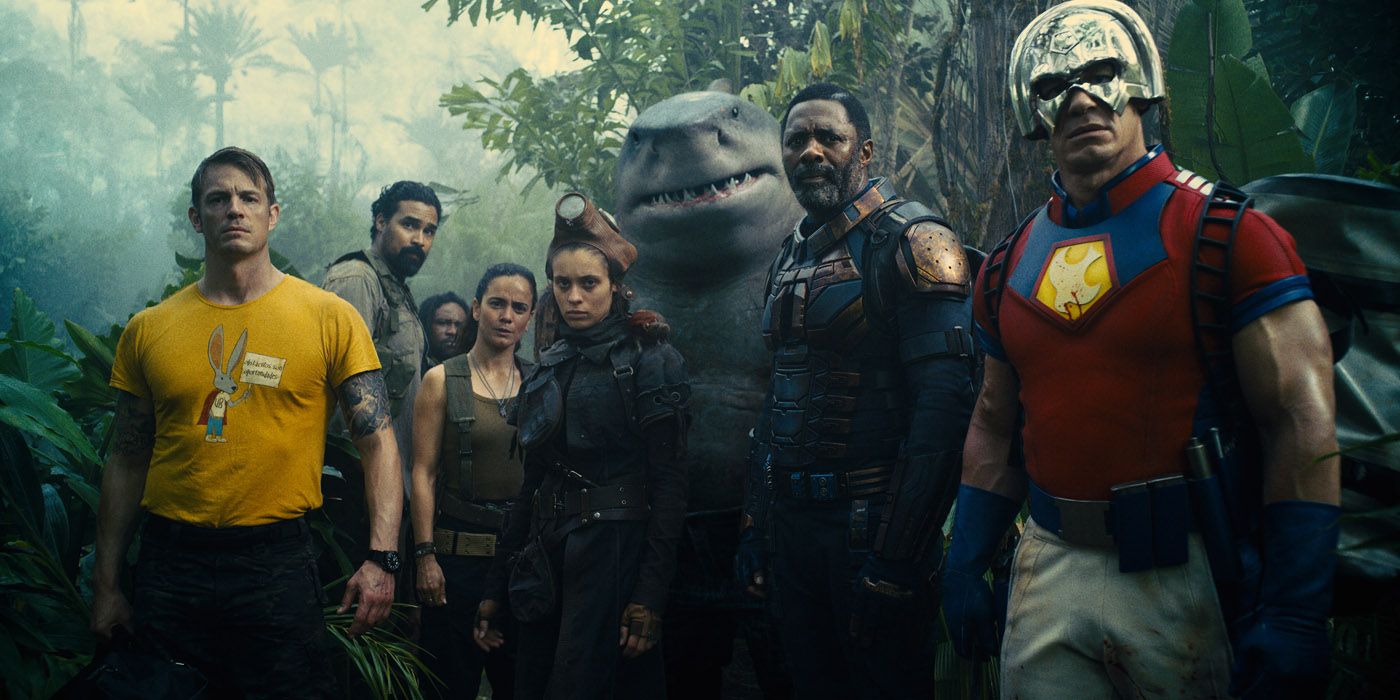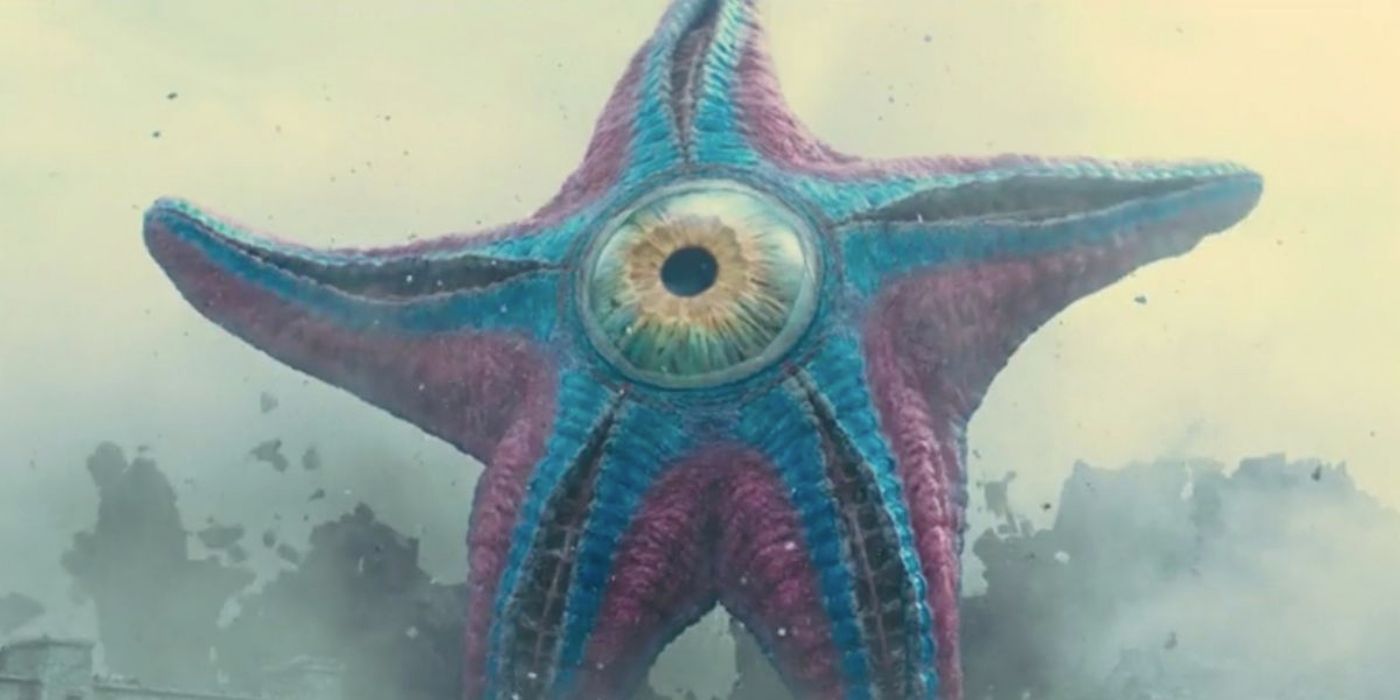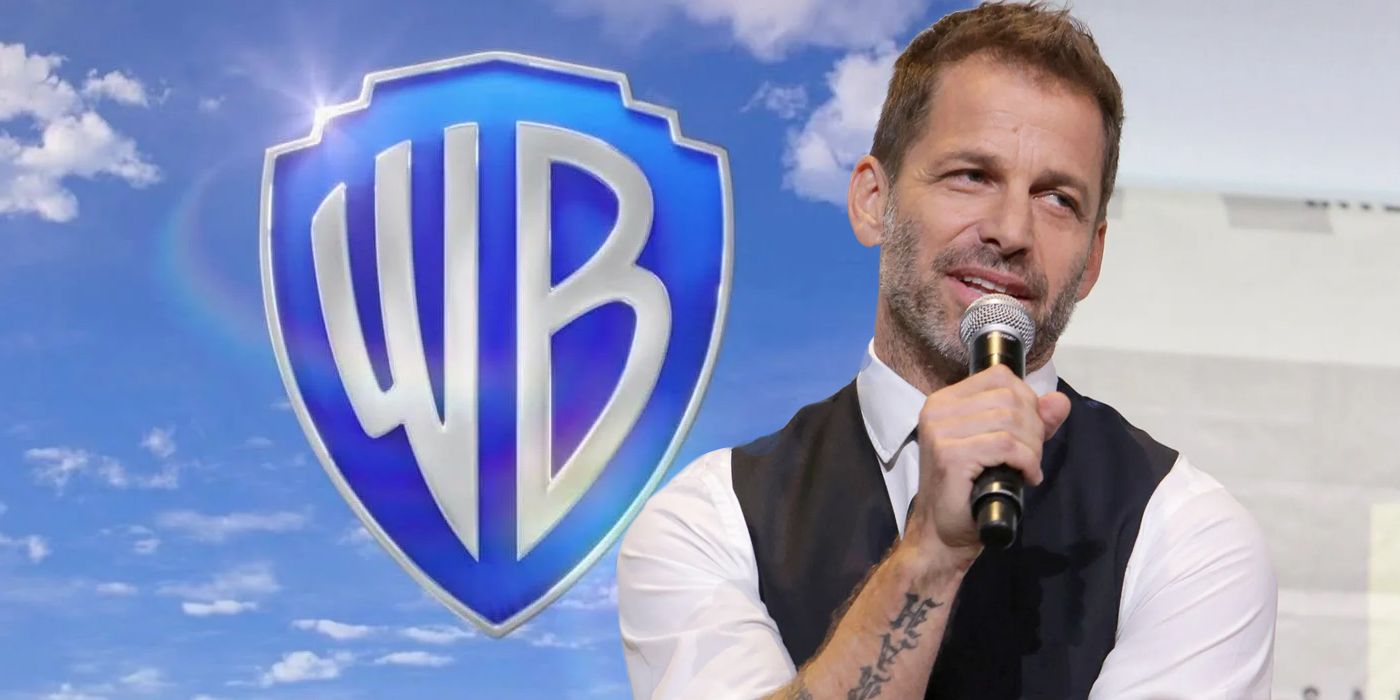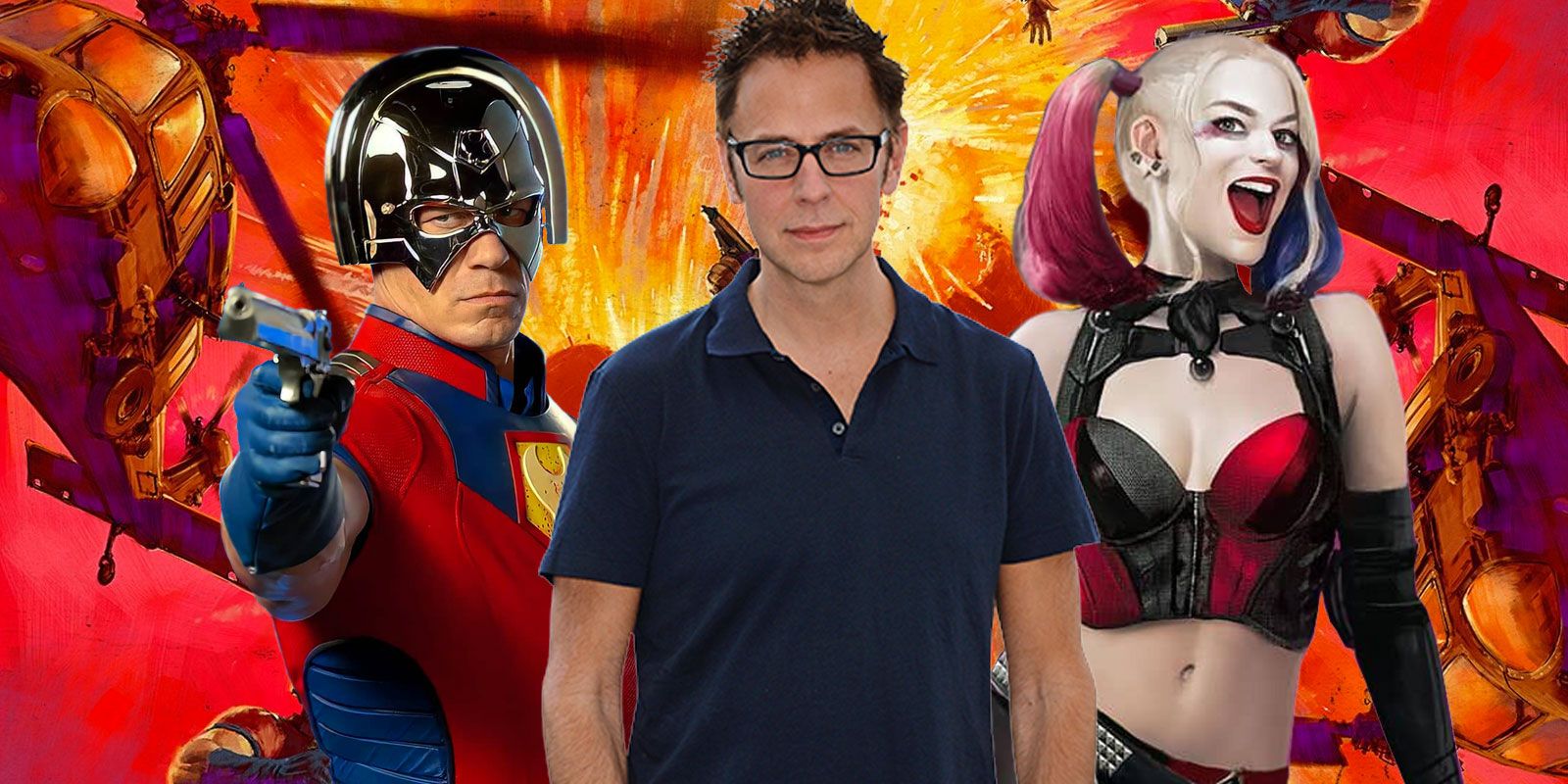James Gunn's The Suicide Squad represents the beginning of a (sort of) new era of the DCEU. After crashing and burning in an attempt to retrofit Zack Snyder's 5-part story into something else entirely, Warner Bros. spent a few years trying to find its way with the DCEU, and James Gunn is a big part of that plan.
The origins of the DCEU, as overseen by Zack Snyder, had a very distinctive tone and direction, but one that saw a lot of division and controversy, leading to Warner Bros. and Snyder parting ways in the middle of Justice League's production. Snyder has said WB seemed obsessed with making the movie funnier, but the resulting attempt to lighten the tone and add jokes in reshoots with Joss Whedon at the helm certainly didn't work out.
While The Suicide Squad isn't exactly the foundation of a brand new shared DC universe, it does help set some expectations for what we can expect from DC Films moving forward. It sounds like there's plans for James Gunn to do more movies, so it's clear what to expect there, but there's a number of things The Suicide Squad says about Warner Bros. new approach to DC filmmaking.
The Suicide Squad is the First Movie of a New Era of the DCEU
While the DCEU has been in a state of flux, most of the movies coming out haven't been representative of the current Warner Bros. and DC executive teams. The leadership of both WB and DC Films has changed hands a few times and there was also the acquisition by AT&T, and most projects were greenlit and started production under previous leadership. Aquaman, Shazam!, Birds of Prey, and Wonder Woman 1984 either started development prior to the release of Justice League or shortly after before Geoff Johns stepped down as the DC's Chief Creative Officer in June of 2018. Even The Suicide Squad technically started development before Justice League but saw so many script overhauls and director changes that after Jame Gunn was hired in October 2018 and given virtually free rein over the project, the current iteration is far more a product of the current administration.
Warner Bros. and DC waffled between total reboots, soft reboots, and just throwing continuity out altogether during this time, so many of the projects coming out maintained a general sense of overall DCEU continuity, although there was no clear throughline leading to any sort of major crossover, so very little was set in stone. While The Suicide Squad also follows a similar pattern, it also pushes the boundaries in some new directions with more "out-there" characters like King Shark, and Starro, and Ratcatcher 2.
How The Suicide Squad Represents What WB Wants From the DCEU
One of the most controversial topics in the Zack Snyder era of the DCEU was the use of humor. At one point, there was a rumor that DC had an outright "no jokes" policy, but Snyder has since said one of his biggest fights with executives on Justice League was over their desire to inject more levity and humor. Detractors also regularly complained of an overall darker tone and less use of bright flashy colors.
Nearly every DC movie since, other than the non-canon Joker, has pushed the color, tone, and humor in that direction, but The Suicide Squad seems to finally be the product executives were asking for with jokes galore and a giant pink and purple starfish alien as the villain at the end. The Suicide Squad is still very R-rated, but the more lighthearted tone seems to be a bigger deal to leadership at WB and DC, which James Gunn certainly delivers.
The DCEU is Still Connected to the Snyderverse, But Don't Think About It
Despite being the first film in a "new DCEU," The Suicide Squad is in many ways just as connected to what was established in Snyder's tenure when it comes to continuity. Viola Davis, Joel Kinneman, Margot Robbie, and Jai Courtney all return as their respective characters from the first movie and acknowledge a shared history (though no specifics are given), and there's no overt retcons to previous films. Superman is referenced, but not shown, so it could easily be Henry Cavill's iteration.
A lot of fuss was made during production about whether or not Gunn's The Suicide Squad was a sequel or a reboot to Ayer's 2016 Suicide Squad, with some producers calling it a reboot, Gunn emphasizing that people didn't need to see the first movie to understand this one, and the title acting like a brand new film, avoiding any clear sequel titles like Suicide Squad 2 (although WB chairman Toby Emmerich did call it that at CinemaCon in 2019).
For all WB's effort to avoid a clear link to the first movie, then the The Suicide Squad ultimately functioning as a loose sequel, it seems WB doesn't want to burn the past films to the ground, but they also don't want people to think about them too often. It'll be curious to see how this is handled with the release of The Flash when Ben Affleck and Ezra Miller reprise their roles, suggesting a much stronger link to Snyder's continuity. Granted, The Flash is also set to dive headfirst into the multiverse, meaning concepts of canon and continuity are very flexible, but it's going to be hard to outright ignore movies like Batman v Superman: Dawn of Justice or either version of Justice League when Batman and Flash are on screen together, especially when they're set to continue elements of Snyder's plan, such as Affleck's Batman providing Flash his new suit.
The DCEU Might (Finally) Give Directors Some Freedom
Ultimately, most members of the general audience might not even think of The Suicide Squad as a new direction for the DCEU, but that may be for the best. The Snyder era of the DCEU never needed to be burned to the ground. In fact, the release of Zack Snyder's Justice League improved the way many people saw Snyder's DCEU installments. The biggest difference with the production of The Suicide Squad is the way James Gunn was given the freedom to make his own movie from the ground up, a liberty many previous directors like Snyder, Ayer, and Cathy Yan didn't have to the same extent.
If the DCEU's future is truly filmmaker-driven, allowing for unique director visions and less studio meddling, which is heralded as all along, then things like tone, color, and humor may be flexible, allowing creators to tell a story the way that matches the content. Hopefully the biggest takeaway from The Suicide Squad, which is one of the highest-rated movies in the DCEU on Rotten Tomatoes.
Of course, since The Suicide Squad entered production before the pandemic, a lot of other things may change. The $185 million budget looks far steeper when the post-pandemic box office means it only opens to $26 million domestically; however, utilizing the movie as a growth tool for HBO Max could still pay off, but WB isn't likely to grant budgets of that scale in the near future unless the box office turns around in a big way.

